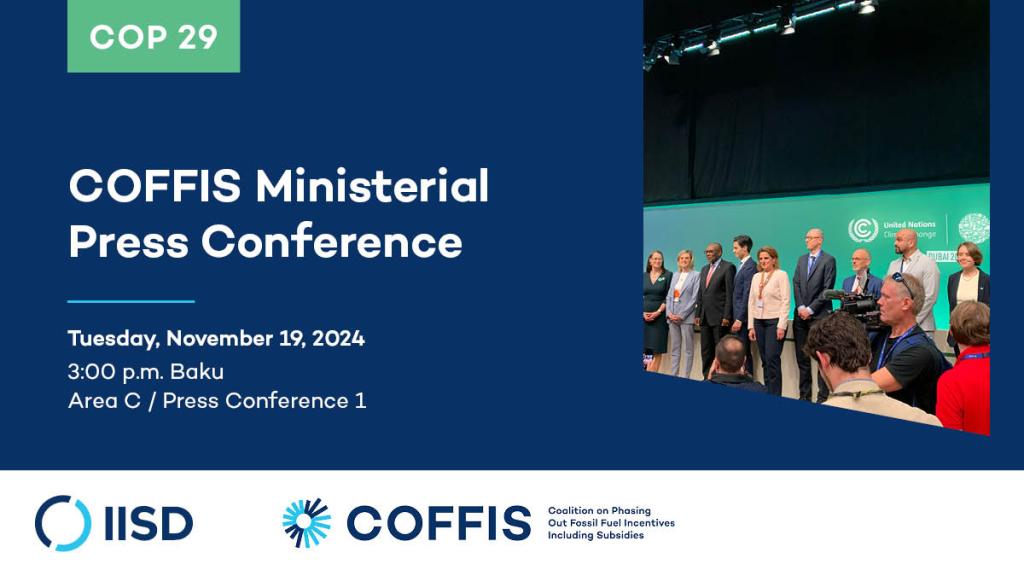COP 29 | COFFIS Ministerial Press Conference

On the sidelines of the UN Climate Conference in Baku (COP 29), the United Kingdom, New Zealand, and Colombia joined the international Coalition on Phasing Out Fossil Fuel Incentives Including Subsidies (COFFIS).
COFFIS is a coalition of governments working together to remove barriers and facilitate transparency toward the phase-out of fossil fuel subsidies.
It now has 16 member countries, including Austria, the federal government of Antigua and Barbuda, Belgium, Canada, Colombia, Costa Rica, Denmark, Finland, France, Ireland, Luxemburg, the Netherlands, New Zealand, Spain, Switzerland, and the United Kingdom.
Some initial members of the coalition released their fossil fuel subsidy inventories ahead of the event.
The coalition’s secretariat is hosted by IISD.
Speakers
Patricia Fuller, President and CEO, IISD
Sophie Hermans, Minister of Climate Policy and Green Growth, the Netherlands
Wopke Hoekstra, Commissioner for Climate Action, EU
Mary Warlick, Deputy Executive Director, IEA
Stuart Horne, Climate Change Ambassador, New Zealand
Rachel Kyte, Special Representative for Climate, United Kingdom
Catherine Stewart, Climate Ambassador, Canada